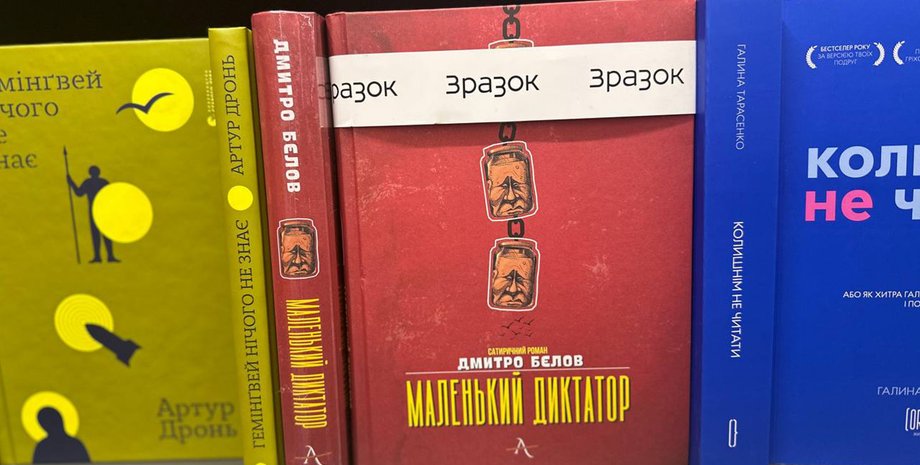
 By Eliza Popova
By Eliza Popova
What "The Little Dictator" is really about, why his laughter sounds more painful than tragedy and why the author forces the reader to look straight into madness - read in the review. The novel begins with the fact that a certain Tsar out of boredom decides to attack a neighboring state. He has been in power for more than twenty years, and he does not enjoy killing opponents, building churches, playing hockey, or riding polar bears.
So he, having read ancient literature, decides to write his name in history as a great commander who led his kingdom to victory. This is where the events begin, which are very similar to those we have seen in the past three years, only through the prism of the absurd and from the side of Russian society. Belov's dictator is very similar to the one we see in Baron Cohen's famous image of Sasha. Just as ruthless, clumsy and stupid.
After all, the whole novel is filled with colorful characters who are extremely stupid and do not understand what they are doing. The kingdom has money, has the largest possessions on the planet, the most natural resources, but it does not have the common sense to live in peace and prosper. One of the strong points is the tone: it seems light, almost satirical, and at the same time bitterly painful. You laugh, and at the same time, you catch yourself thinking that all this is not an abstraction.
The system of dictatorship is not only fear of the "superior", but fear of those who applaud. As the author says: "I don't believe in the fairy tale about the 'innocent people'. " It is also important that the novel is not a opportunistic pamphlet answer. He does not shout slogans, does not look for easy solutions. He says: yes, it is cruel, it is senseless, it is a society that works like a machine, where a "little dictator" can appear anywhere.
And this is a challenge — to read, to understand, to be not just a spectator, but a participant. Belov suggests turning to the past — not as nostalgia, but as a warning. His hero is a collective image of all "little people" who one day wake up with great ambitions to rule the world. And in this sense, the novel is not only about modernity, but about the eternal repetition of history, where evil always grows out of pettiness, fear, and tacit consent.
The abstract tells us that the book is similar to "The Adventures of the Brave Soldier Shveik" and "Trap-22" and it is true. Reading "The Little Dictator" you catch yourself thinking that this novel, as if it was written not today, but several decades ago. Everything in this story seems to have petrified, just like the image of the dictator. The novel is populated by a number of recognizable characters, from the dictator (Putin) to his cook (Prygozhin).
However, it is important that Belov does not turn the text into a political caricature: his heroes are types of the system, not specific people. The Tsar's only antagonist is a young guy who accidentally becomes the deputy minister of defense and tries to stop a war provoked by insanity from above. This clash of youth and old age, life and decay is a metaphor for trying to break the cycle of violence.
The strong side of the novel is also the narrative, which shows the involvement of the entire nation in the birth of the war. The image of a dictator is not just an individual tyrant, but a collective shadow that grew out of indifference, fear, and willingness to obey. This is what makes the book not about one monster, but about the society that allows it to exist.










All rights reserved IN-Ukraine.info - 2022